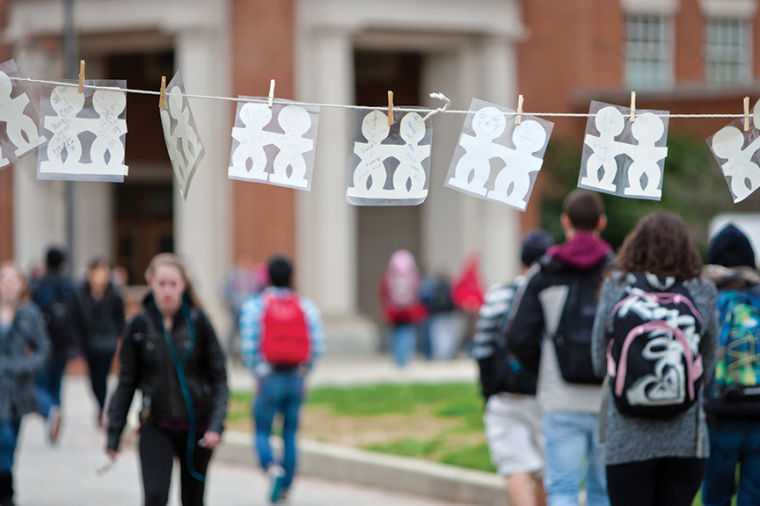Views expressed in opinion columns are the author’s own.
In tennis, there is a lot of discussion about love, but not in regards to compassion. That became very apparent in the past week after watching how tennis player Naomi Osaka was treated at the French Open.
After each match at the French Open, there is a post-match conference with international media. In moments of triumph or defeat, players are expected to sit through intense questioning — having to recount a match they have not fully digested — and take accountability for plays they have not yet reviewed with their coaches. This intensity only ramps up as the reputation of the player rises, and given her status as one of the world’s greatest tennis players, the tension for Osaka can be through the roof. After skipping her first post-match news conference due to concerns for her own mental health, Osaka was fined $15,000, and threatened with further sanctions if she were to skip any more conferences. A day later, Osaka announced she would withdraw from the tournament.
It’s not like Osaka withdrew because she wanted to hide from the embarrassment of an early tournament exit; in fact, she was one of the favorites in the event. Osaka withdrew from the tournament due to her struggles with depression and social anxiety, both of which are augmented through participation in these post-match pressure-cooker interviews. In a notable act of self-care, Osaka put her own mental health before her career advancement, setting a worldwide example on what it means to value your mental well-being in an era of intense labor production. Yet, in return, she faced chastisement from the sport that benefits from her amazing play. Osaka should not have been placed in a situation where she had to choose between her mental or economic well-being — and no one else should either. It is imperative that as a society, we rework our workspaces and communities so no one should have to choose between their mental health and economic security.
It’s about time we have a collective reckoning with mental health in the workplace, as this issue transcends international sports. More than 50 percent of Americans will be diagnosed with a mental illness or disorder at some point in their life, according to the CDC. What’s worse is the stigma surrounding mental health and effective treatments.
That stigma is one of the reasons 57 percent of people nationwide avoid treatment, leaving Americans to battle serious illnesses alone. Statistics like these are alarming, but seemingly unknown, as people such as Piers Morgan have continued to harass Osaka and make tone-deaf statements about mental health and its severity.
Several factors can lead to mental illness, such as genes, catastrophic events or trauma and feelings of isolation — and COVID-19 has only worsened its prevalence. When dealing with mental health concerns that are worsened in the workplace, which is unavoidable for the millions of Americans still trying to pay their bills — ignoring mental health is simply cruel.
This is what makes Osaka’s act so significant. With an athlete of Osaka’s prominence and prestige not only talking about, but acting on, mental health provisions, the stigma and its foundations could begin to crumble.
Now with calls for mental health provisions in the workplace and our society, we will have to work with our employers and local governments to enact change. There are several ways companies and governments can assist in improving the mental health of their workers and citizens, while also achieving other goals in the process.
One major way would be mandating that companies offer paid time off, which would allow workers to take time away from their jobs without having to sacrifice a paycheck. Not only would more time off help employees’ mental health, but it would also increase their productivity while at work, making them more efficient employees.
Another effective mechanism would be using local governments and urban planners to create environments more conducive to positive mental health. This could appear in the form of more green space, more efficient public transportation, a more inclusive social scene and reduced discrimination and safety concerns in our cities — all of which have been shown to help workers.
It’s clear the tools are present for us to incorporate mental health in our office and residence spaces — we just need the final push to use them. Osaka is in a league of her own on the tennis court, where she has accumulated four Grand Slam titles and a No. 1 tennis ranking — all before the age of 23. She seems like the perfect candidate to lead this movement. We must continue to support her in her quest for her own mental well-being, but must also follow her lead and fight for better mental health treatment in the workplace and our communities.
Anthony Liberatori is a rising junior environmental science and economics major. He can be reached at alib1204@umd.edu.



